Top AI Social Media Management Tools in 2025
December 6, 2024

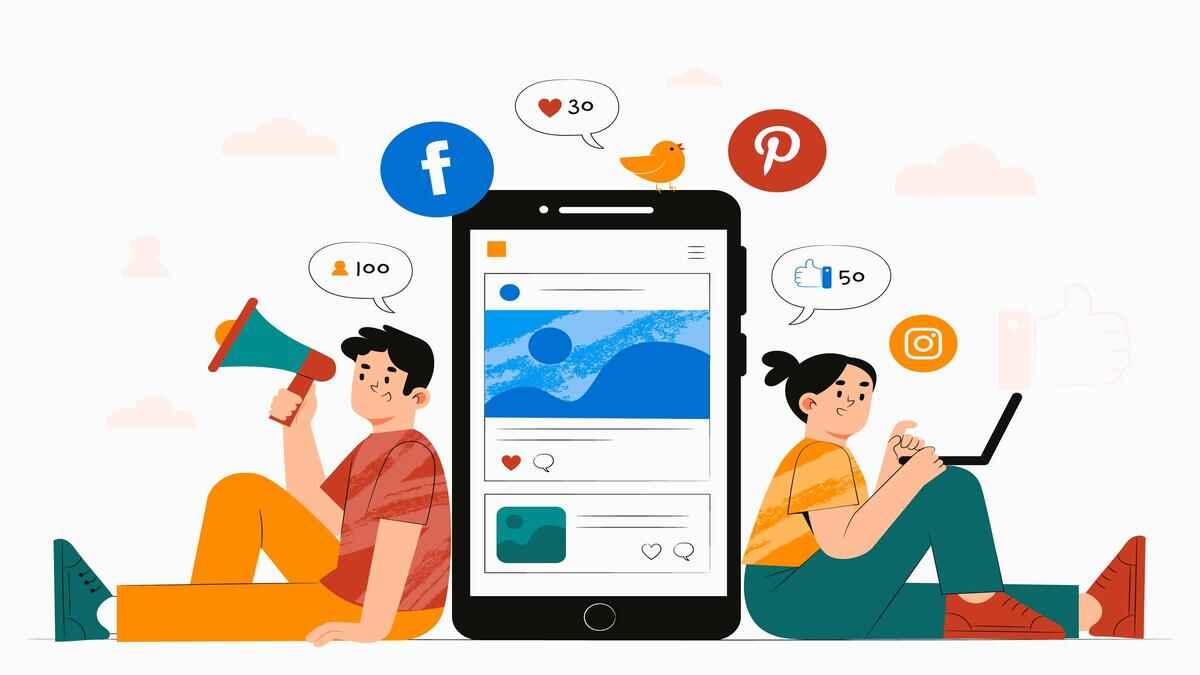
AI revolutionizes social media management. By automating tasks and analyzing data, AI empowers businesses to make data-driven decisions and enhance engagement. Businesses can effectively utilize ai workflow automation tools to streamline their social media processes and focus on strategic initiatives.
AI social media management uses artificial intelligence to automate and optimize diverse aspects of social media advertising. This generation empowers businesses to streamline duties, beautify performance, and reap better results. By leveraging AI-powered gear, marketers can keep time, lessen manual attempts, and make record-pushed decisions.
AI automates repetitive tasks such as scheduling posts, responding to comments, and analyzing data, freeing time for strategic planning and creative content creation.
AI-powered analytics tools provide valuable insights into audience behavior, allowing businesses to make informed decisions about content strategy, campaign optimization, and target audience segmentation.
AI enables personalized interactions with followers by tailoring content recommendations and responses based on individual preferences and behaviors.
AI-powered chatbots and virtual assistants can provide round-the-clock customer support, ensuring prompt responses and addressing inquiries outside business hours.
AI-driven content optimization tools help businesses create engaging content that resonates with their target audience, leading to higher visibility, increased click-through rates, and improved brand awareness.
Selecting the optimal AI tool for your social media management needs is paramount to maximizing its benefits and achieving your business objectives. To make an informed decision, consider the following key factors:
Pinpoint the specific tasks you want to automate, such as content creation, scheduling, community management, or analytics.
Assess your future growth plans and choose a tool to adapt to your expanding needs.
Evaluate the potential return on investment (ROI) and align it with your budget.
Consider various pricing models, including subscription-based, pay-per-use, or one-time licensing fees.
Consider additional costs like training, data storage, or integration fees.
Prioritize tools with intuitive interfaces and minimal learning curves.
Consider the availability of training materials and support resources.
Identify any skill gaps within your team and choose a tool that complements their strengths.
Ensure the tool integrates seamlessly with your existing social media platforms (e.g., Twitter, Instagram, Facebook, LinkedIn) and other marketing tools (e.g., CRM, email marketing).
Verify that the tool can synchronize data and insights across different platforms.
Assess the availability and responsiveness of customer support channels (e.g., email, phone, live chat).
Look for detailed documentation, tutorials, and knowledge bases.
Consider the availability of training programs and onboarding support.

Hootsuite is an all-in-one social media management platform that lets users timetable posts, track engagement, and analyze overall performance. It supports more than one social media structure.
Starts at $19/month for the Professional plan.
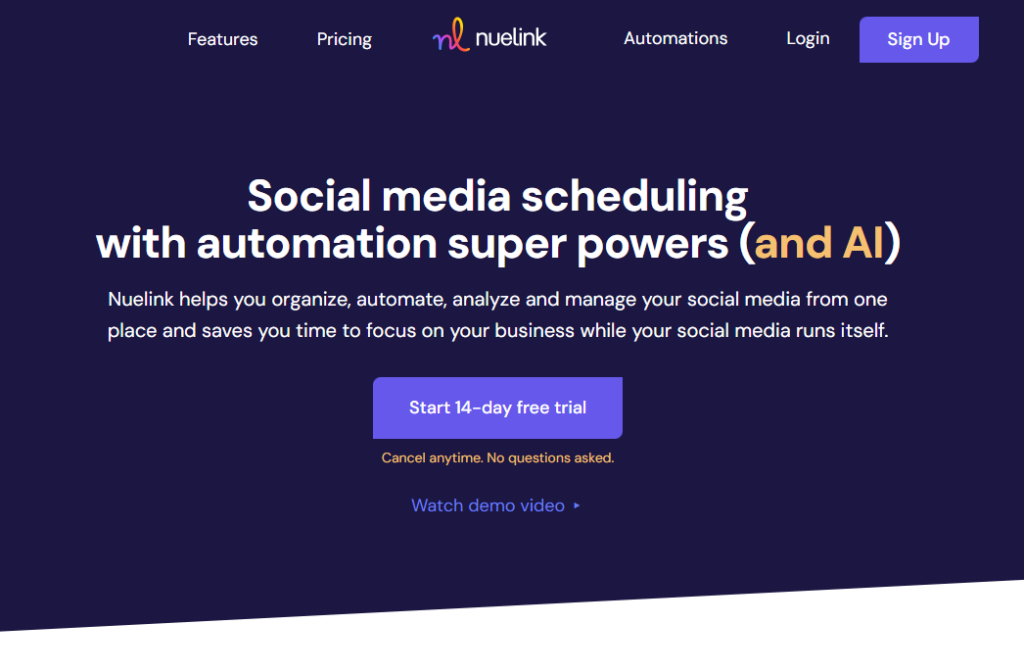
Nuelink is a social media management and automation tool designed for a wide range of professionals including but not limited to agencies, e-commerce brands, podcasters, creators, and agencies. Nuelink helps you manage, schedule, analyze, and automate social media posts across 12+ different social media platforms such as Instagram, TikTok, and Pinterest. With extra features such as bulk scheduling, link-in-bio, and link shortener.
Starts at $18/month for the Standard plan.
Email: [email protected]

Buffer is a popular social media scheduling and analytics tool that allows users to manage multiple accounts, schedule posts, and review analytics to improve engagement.
Starts at $15/month for the Essentials plan.

Sprout Social is a powerful social media management tool that offers scheduling, monitoring, and analytics features for businesses of all sizes. It integrates with major social media platforms.
Starts at $99/month for the Standard plan.
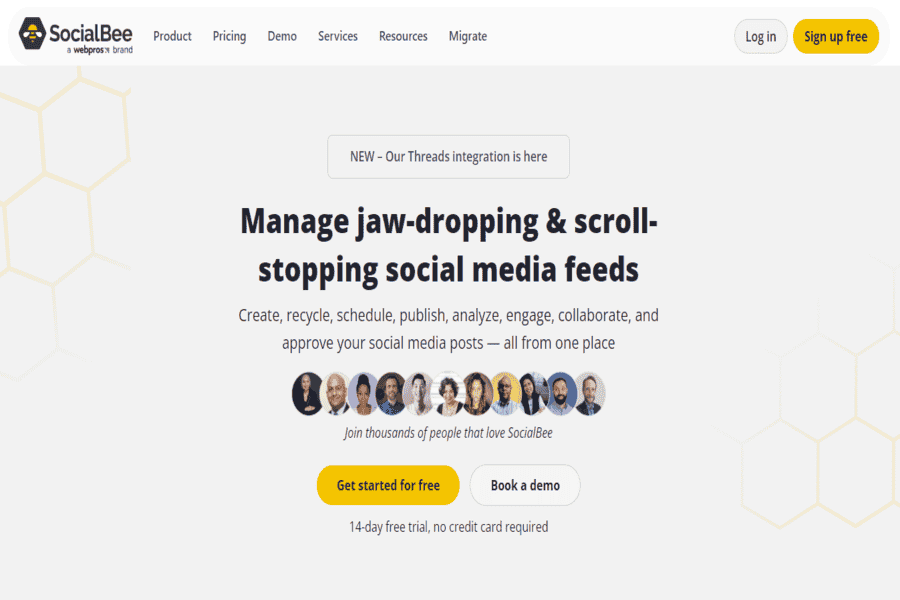
SocialBee is a social media management tool focusing on content scheduling and categorization, offering content creation, scheduling, and analytics features.
Starts at $19/month for the Bootstrap plan.
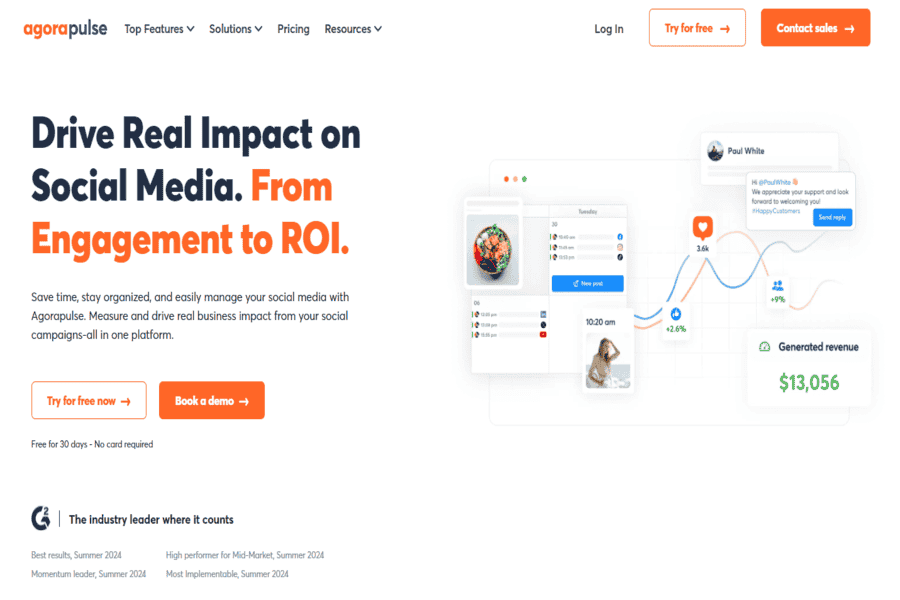
Agorapulse is a social media management tool that allows you to schedule posts, track mentions, and analyze the performance of social media campaigns. It supports several platforms, including Facebook, Twitter, and Instagram.
Starts at $79/month for the Pro plan.

Zoho Social is a social media management platform designed for businesses. It offers features for scheduling posts, monitoring social media conversations, and analyzing performance.
Starts at $10/month for the Standard plan.
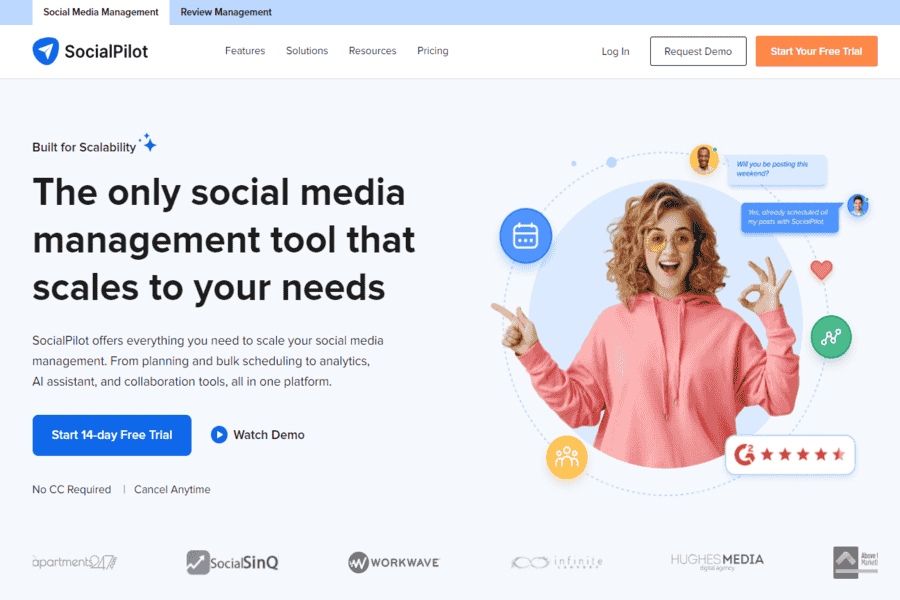
SocialPilot is a social media scheduling tool that offers powerful content scheduling, analytics, and team collaboration features designed to help small and medium-sized businesses grow their social presence.
The Professional plan starts at $25/month.
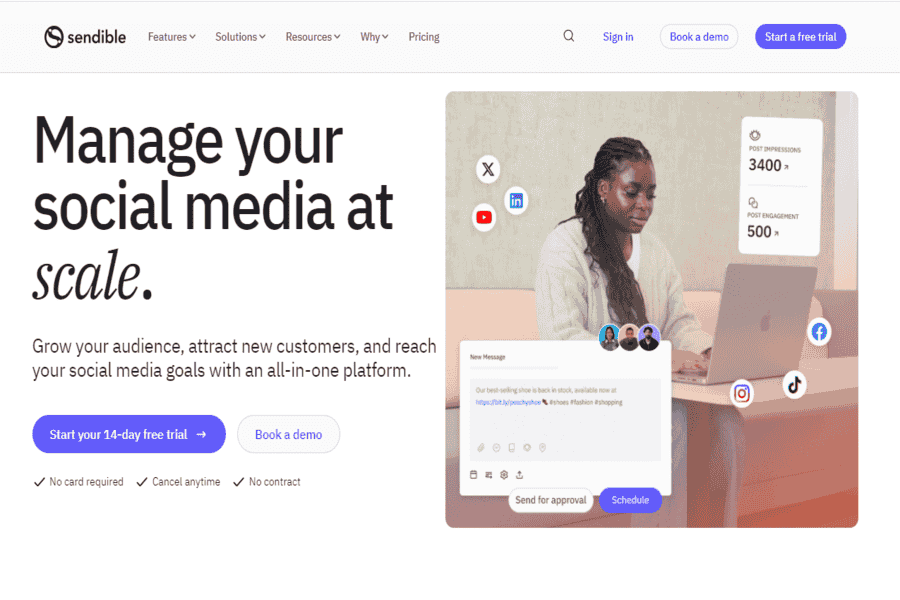
Sendible is a social media management tool for agencies and businesses managing multiple clients. It allows for scheduling, content curation, analytics, and reporting across various platforms.
Starts at $29/month for the Starter plan.
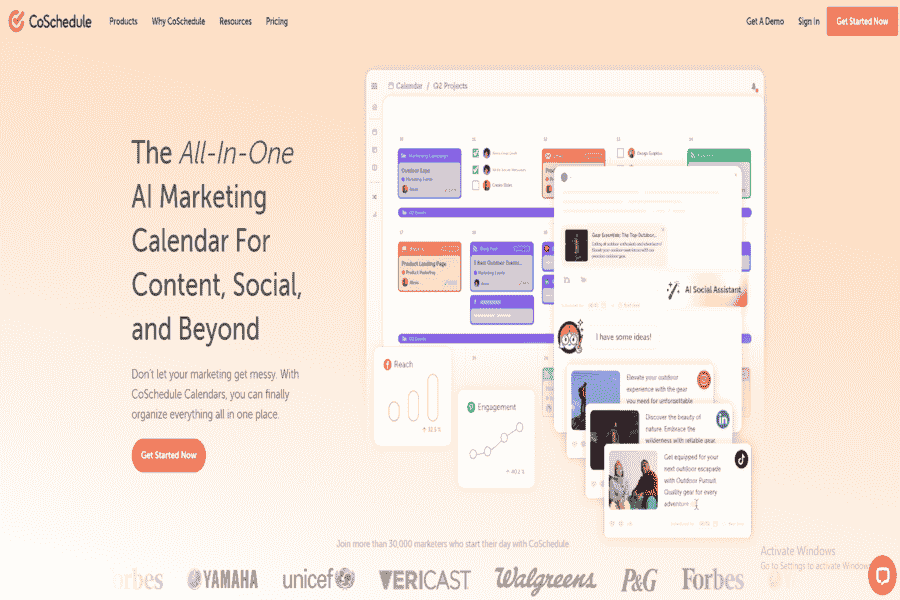
CoSchedule is a marketing platform with social media scheduling, content management, and automation tools. It helps marketers plan, organize, and execute campaigns more efficiently.
Starts at $29/month for the Individual plan.
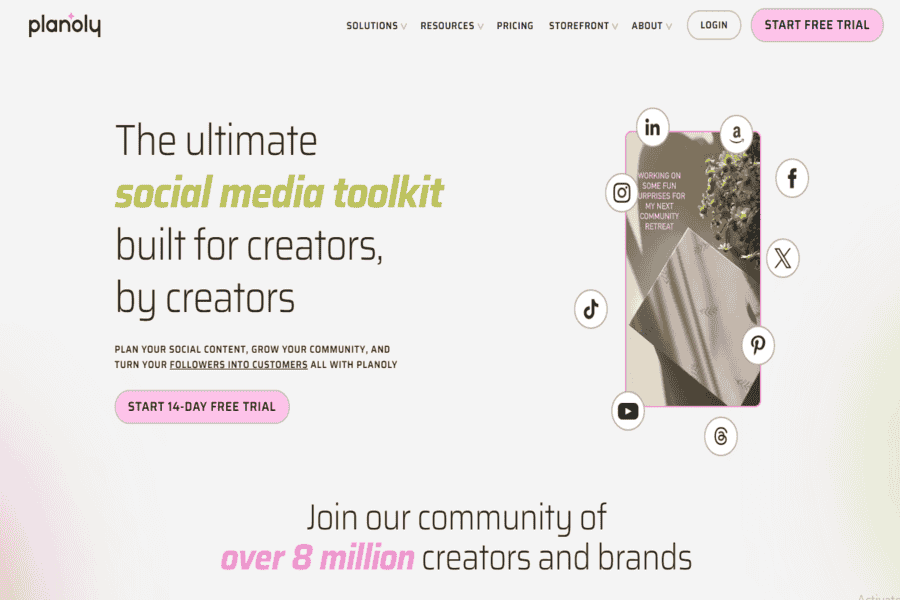
Planoly is a social media management tool specializing in Instagram content scheduling, analytics, and visual planning. It also offers scheduling for Pinterest.
Starts at $7/month for the Solo plan.
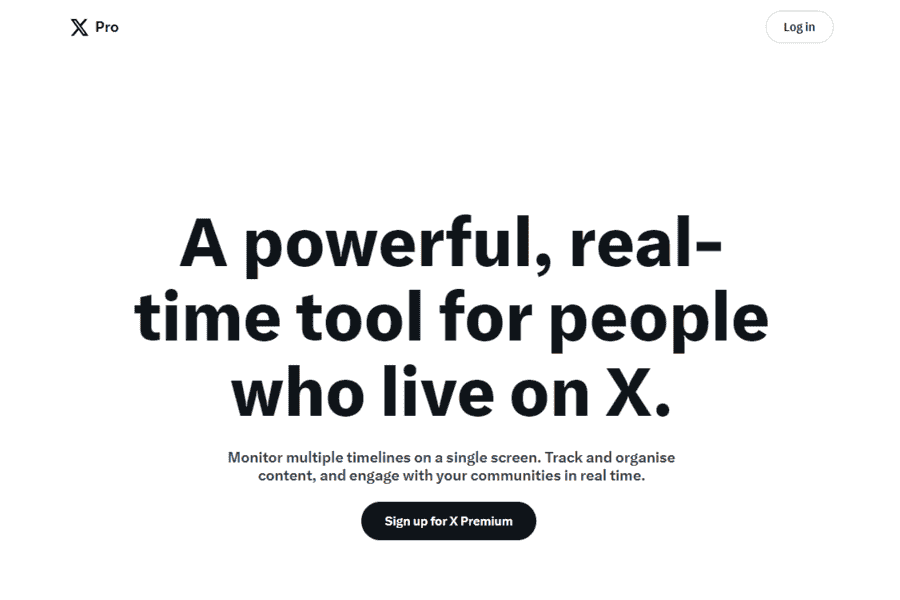
TweetDeck is a social media management tool specifically for Twitter. It allows users to schedule tweets, track mentions, and manage multiple Twitter accounts in one interface.
Free.
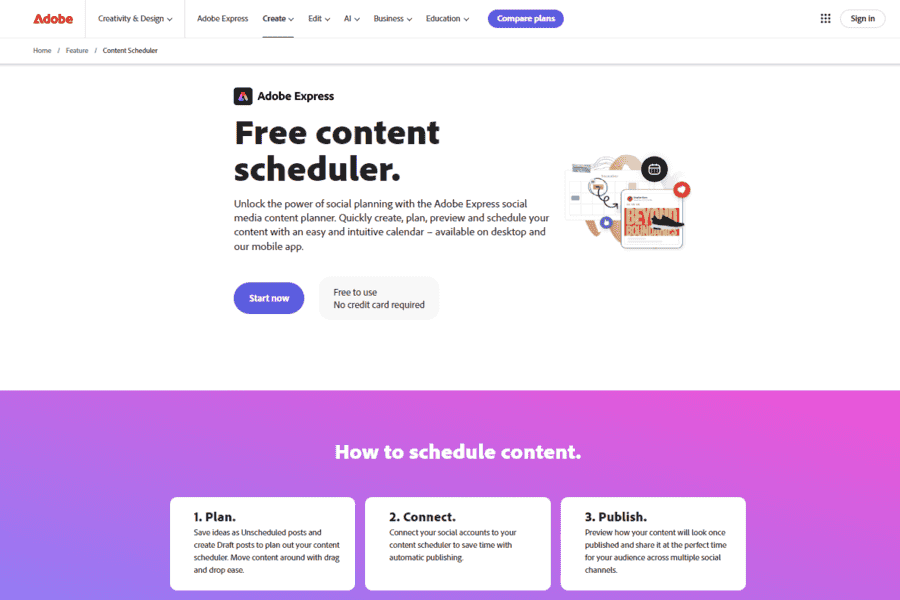
ContentCal is a social media management tool designed for teams. It helps with content planning, scheduling, and collaboration for marketing campaigns across social media platforms.
Starts at $17/month for the Individual plan.
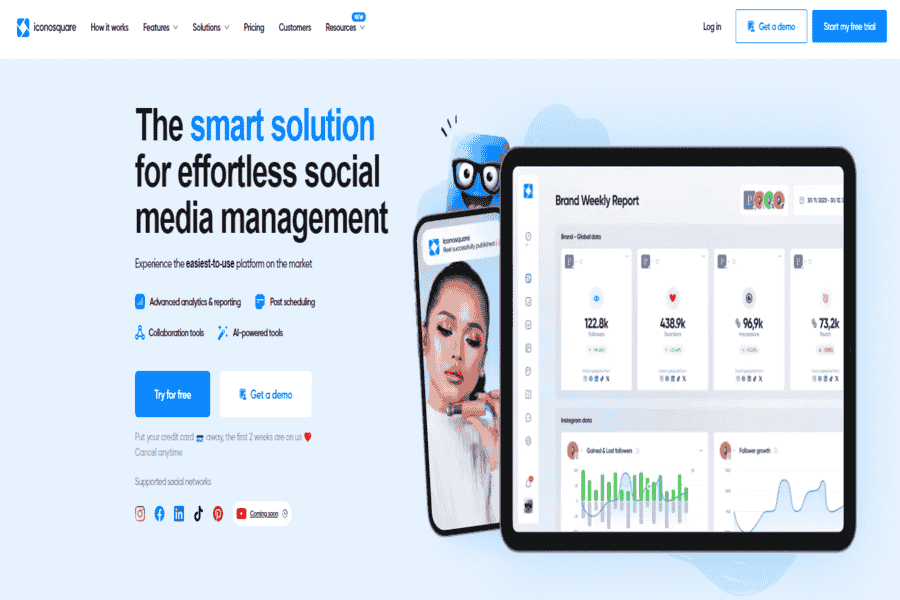
Iconosquare is a social media analytics and scheduling platform specializing in Instagram and Facebook. It provides in-depth performance metrics, along with content scheduling tools.
Starts at $19/month for the Pro plan.
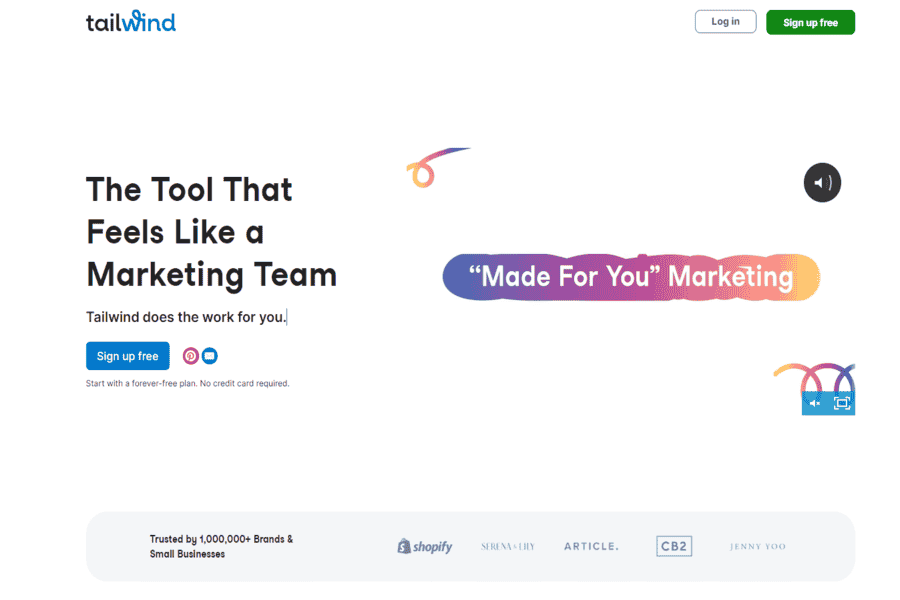
Tailwind is a social media scheduling tool that focuses on Pinterest and Instagram. It provides tools for planning, scheduling, and analyzing content to optimize social media campaigns.
Starts at $19/month for the Pro plan.
To maximize the effectiveness of AI social media tools, follow these best practices:
Establish specific, measurable, achievable, relevant, and time-bound (SMART) goals for your social media campaigns.
Ensure your social media goals contribute to your overall business strategy.
Feed your AI tool accurate, relevant, and up-to-date data to improve performance.
Continuously refine the AI’s algorithms to optimize its ability to understand your brand voice, target audience, and content preferences.
Monitor key performance indicators (KPIs) such as engagement, click-through, and conversion rates.
Utilize AI-powered analytics tools to gain valuable insights into audience behavior and content performance.
Make data-driven adjustments to your social media strategy to improve results.
Review AI-generated content to ensure it aligns with your brand voice and messaging.
Be prepared to intervene in case of unexpected crises or negative sentiment.
Use human expertise to make strategic decisions that AI may not fully comprehend.
Be transparent about your use of AI with your audience.
Ensure AI-generated content is accurate and truthful.
Adhere to data privacy regulations and protect user information.
The future of AI social media management is undeniably exciting, with emerging technologies poised to revolutionize the industry. As AI continues to advance, we can anticipate the following developments:
AI will enable the creation of highly personalized content, tailoring messages to individual preferences and behaviors.
AI-powered chatbots and virtual assistants will provide instant, personalized customer support.
AI tools will generate high-quality content, from blog posts to social media captions, saving time and effort.
AI algorithms will curate relevant content from various sources, ensuring a steady stream of valuable information.
AI will analyze vast data to predict future trends and optimize marketing strategies.
By anticipating future trends, businesses can make proactive decisions to stay ahead of the competition.
Businesses must be transparent about their use of AI and the potential impact on their audience.
AI algorithms must be trained on diverse, unbiased data to avoid perpetuating harmful stereotypes.
While AI offers significant advantages, human creativity, empathy, and strategic thinking will continue to be essential. Combining AI-powered tools with human expertise, a hybrid approach will yield the best results.
AI social media control is undeniably the destiny of digital advertising. By embracing AI-powered equipment, agencies can revolutionize their social media techniques, boost performance, and attain gorgeous consequences. At the same time, as AI offers vast capacity, it’s fundamental to understand that human oversight remains indispensable to preserve emblem authenticity and address unexpectedly demanding situations. As generations advance, organizations that adapt to AI-pushed strategies will take advantage of an aggressive part and thrive in the ever-evolving virtual panorama.
